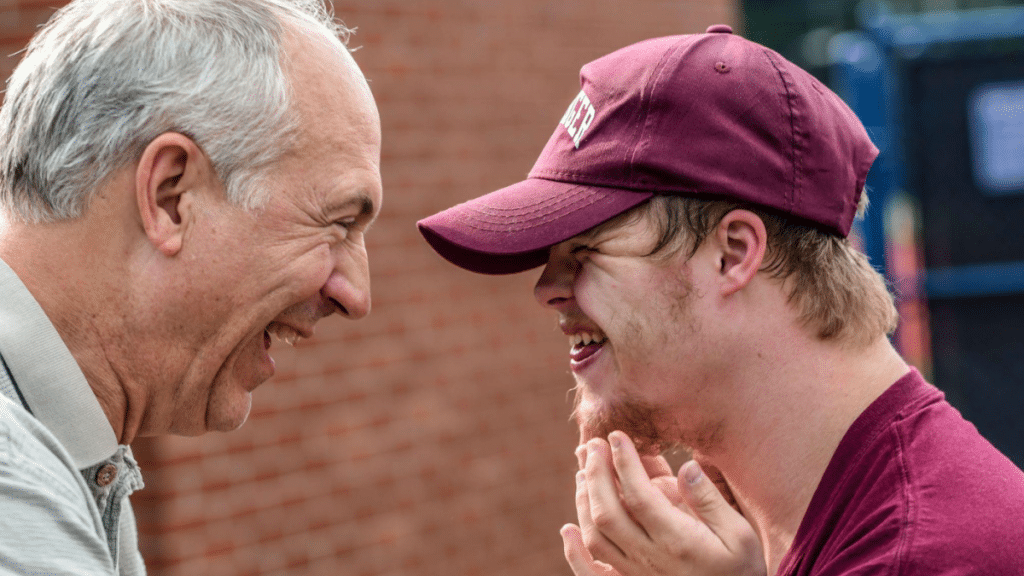For most people, hobbies are an opportunity to embrace their social nature, lift their mood, and find joy in shared experiences — and there is more. Scientists at Nature Medicine studied over 93,000 people who engaged in things they love during leisure time and found that they were not only happier but also healthier.
It doesn’t matter if it’s simple birdwatching or a more fun and engaging experience like swimming or painting. Day program activities for adults with developmental disabilities enhance cognitive function, boost confidence, and build social connections.
In this blog post, we’ll closely examine some of the most ideal hobbies and activities for people with developmental disabilities and the benefits for them.
Let’s begin.
Why are different activities and hobbies so important for people with developmental disabilities?
Leisure activities like painting, singing, or spending time outdoors are enjoyable for adults with learning challenges. It’s not just a break from their routine, it lets them express themselves and explore their talents.
These activities also help them build skills and feel a sense of achievement. The important thing isn’t whether they completed or finished the activity. The goal is to join in, have fun, and meet others who share similar interests.
Let’s highlight the main benefits
Fun activities for adults with developmental disabilities can improve social, emotional, and physical abilities, particularly when done outdoors and enjoyed with others. Here are specific benefits you derive from your favorite hobbies:
- A break from routine;
- Enjoy relaxation;
- Build independence;
- Clear the mind;
- Become physically and mentally fit;
- Discover and develop life skills;
- Learn new things in a fun way;
- Broaden your interest;
- Meet new people;
- Sharpen communication abilities;
- Nurture personal growth.
No matter what you love doing in your leisure time, there’s a hobby for you. What is important is finding one that feels purposeful and fun to learn. Here are five great ideas to consider.
Art
Artistic activities like painting, drawing, and sculpting are enjoyable and relaxing. It feels fulfilling to be able to express yourself through art and see your ideas take shape. The process of creating art can be incredibly healing, give a sense of inner peace, and boost self-esteem.
When done as a group, these activities further help participants build connections with other art enthusiasts.
Singing
Do you have a favorite song you love humming to and can’t get enough of? Maybe you even imagine playing along with a guitar or drums. Engaging in music therapy activities for adults with developmental disabilities improves fine motor skills, memory, and focus. What’s more? You’ll love the joy and satisfaction of bonding with fellow music lovers, and making friends with them.
Swimming or Kayaking
Who doesn’t love fun in the water? Water activities are enjoyable and come with loads of benefits for people with special needs. It keeps them physically fit and builds confidence as they swim or paddle on their own in pools or streams. These refreshing activities are also great for socializing and having fun outdoors.
Reading Club

If exercising keeps your body fit, reading keeps your mind sharp. Joining a community of fellow book lovers does more than sharpen your reading skills. It improves comprehension, memory, and social skills.
Don’t worry if reading is a challenge. Most reading clubs have assistive technologies like screen readers or audiobooks to ensure everyone can join in and benefit.
Gardening
Getting your hands dirty in the soil has a soothing way of getting you close to nature. It’s a chance to connect with fellow garden lovers like yourself. You’ll make friends who share your passion for gardening. Together, you can swap stories, share advice, and learn from each other’s experiences about making your garden thrive.
Whether in a backyard or shared garden, gardening is a delightful way to enjoy the companionship of nature and new friends you perhaps share your fresh produce with.
Conclusion
Taking part in physical activities for adults with developmental disabilities offered by support centers like Gateway Counseling Center is highly beneficial. These personalized activities help individuals grow mentally and as individuals, while also fostering strong social bonds. From arts and crafts to music classes, book clubs, and gardening, there’s something for you to enjoy and learn from while building friendships with others.
